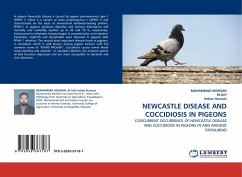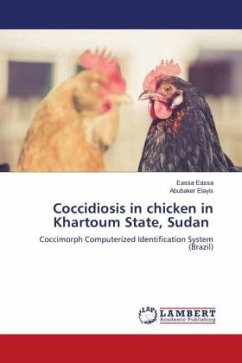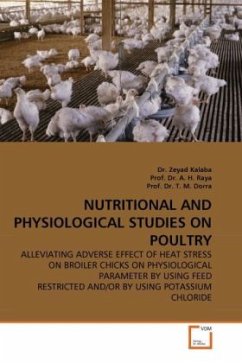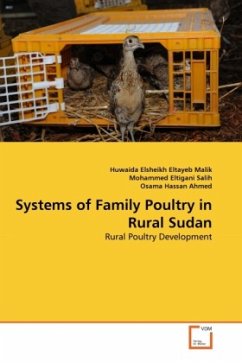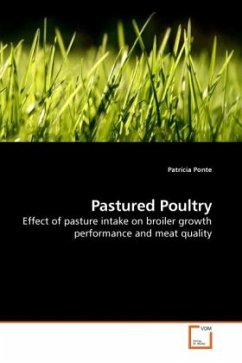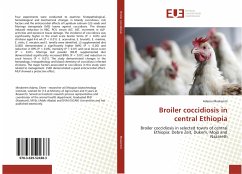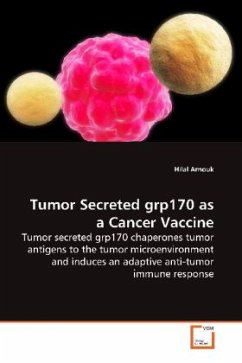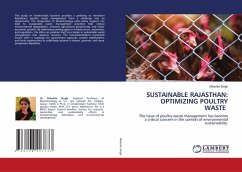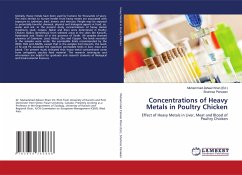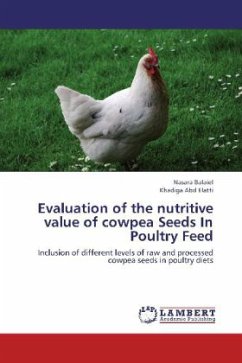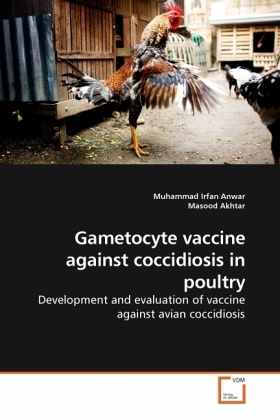
Gametocyte vaccine against coccidiosis in poultry
Development and evaluation of vaccine against avian coccidiosis
Versandkostenfrei!
Versandfertig in 6-10 Tagen
39,99 €
inkl. MwSt.

PAYBACK Punkte
20 °P sammeln!
Among poultry diseases, coccidiosis remains one of the most serious problems of poultry with treatment of high cost and ineffective drugs. Vaccination seems to be an effective and safe alternate to control the disease. It favored both by the biology of Eimeria species and husbandry methods that create a high risk of disease in untreated birds, yet favor the controlled uptake and further replication of vaccinal oocysts. Various commercial vaccines are being used to control coccidiosis in several countries of the world in spite of their limitations in broiler and heavy roster birds, because of r...
Among poultry diseases, coccidiosis remains one of the most serious problems of poultry with treatment of high cost and ineffective drugs. Vaccination seems to be an effective and safe alternate to control the disease. It favored both by the biology of Eimeria species and husbandry methods that create a high risk of disease in untreated birds, yet favor the controlled uptake and further replication of vaccinal oocysts. Various commercial vaccines are being used to control coccidiosis in several countries of the world in spite of their limitations in broiler and heavy roster birds, because of reduced weight gain and feed conversion ratios as compared to those prophylactically medicated chickens. Moreover, there is a risk of introducing unwanted Eimeria species into the environment due to the regional variation in the antigenicity of coccidial strains. Keeping in view, the present project was under taken to study the efficacy of egg propagated gametocytes (E. tenella; local isolates) vaccine under field conditions and its comparative efficacy with imported live vaccine. It also includes the molecular characterization of different local isolates of egg propagated gametocytes of E.



